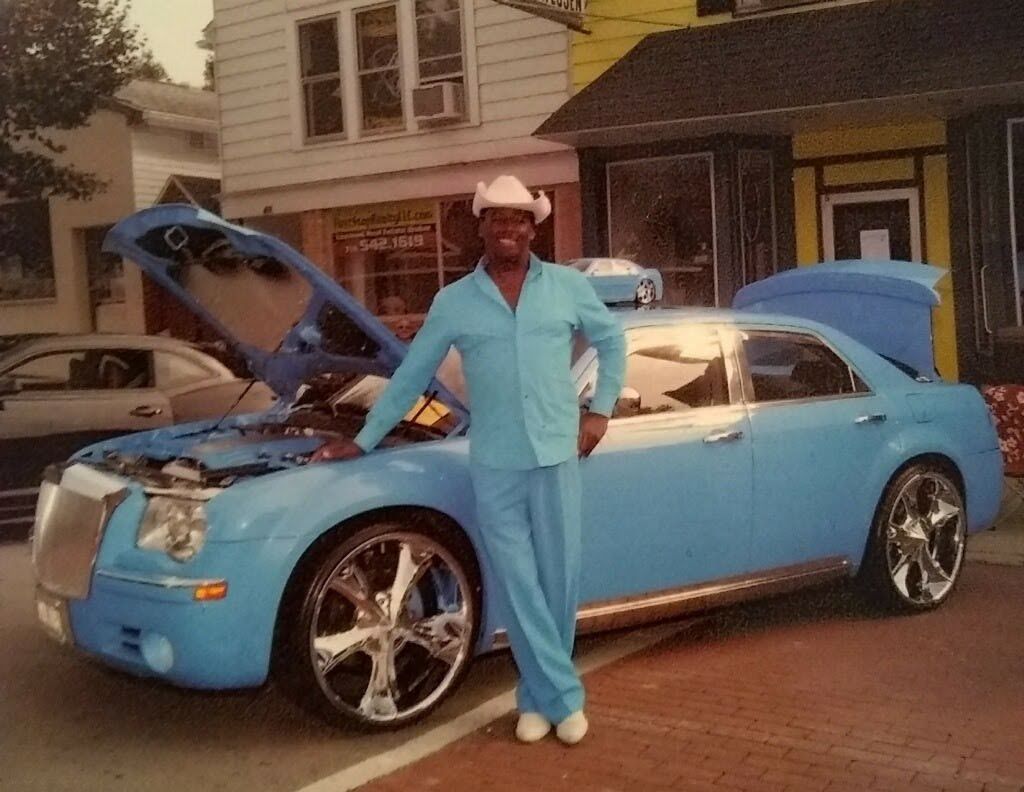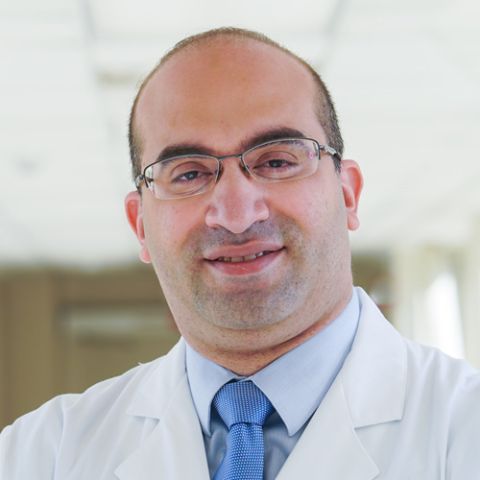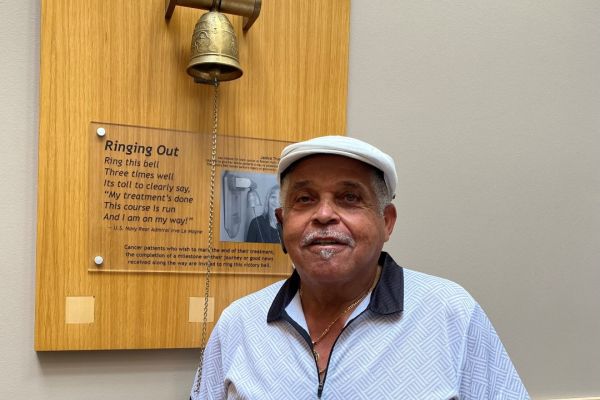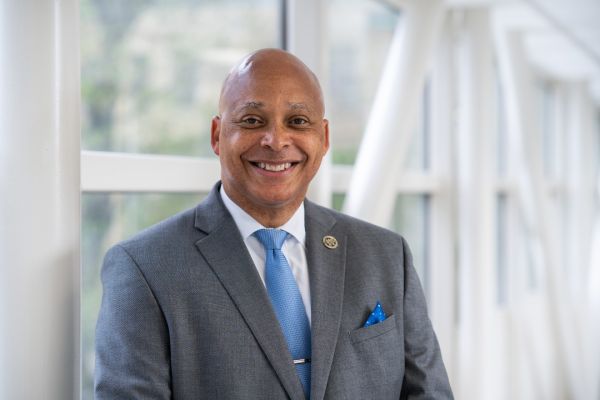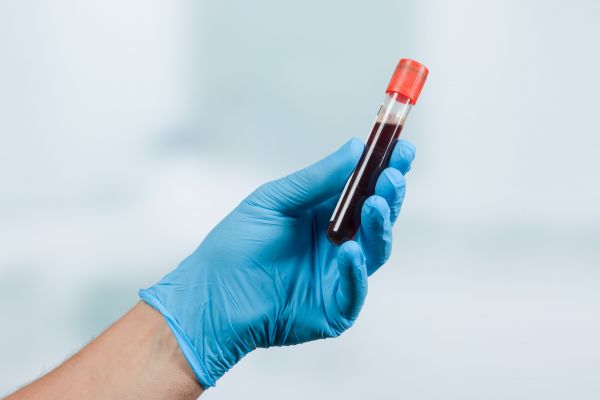Charles Chandler knows it’s important for men to be aware of, and concerned about, their health. While he’s not certain, he believes one of his mother’s uncles had prostate cancer during the 1970s. “It was rumored someone had a medical problem and they were talking about taking their manhood,” he says. “He did succumb, after saying no one was going to take his manhood, and I remember going to Detroit for his funeral.”
Charles didn’t think too much more about it until he saw ads for Cruisin’ for a Cure, the annual car show at Roswell Park Comprehensive Cancer Center each September, hosted by Men Allied for the Need to Understand Prostate Cancer (MANUP) WNY. The event offers free prostate cancer early detection tests in the hope of catching the disease in an earlier state, if present, and helping to erase the stigma among men talking about prostate cancer and having these tests. “When MANUP came about, I said, ‘Oh my God, that’s probably what he had.’”
A car enthusiast, Charles signed up to show off his prized possession, a 2005 Chrysler 300 he had custom painted to a shade of blue that almost mimics the color of the Smurfs on the cartoon show. With its unusual custom color, the car was an instant hit and earned him the nickname of “Blue.” He even made himself a suit in the same shade, which he’d wear to car shows.
Charles became a regular, both on the car show circuit and at Cruisin’ for a Cure. (The event is scheduled for Saturday, September 23 from 9 a.m. until 4 p.m. with prostate detection tests running from 11 a.m. until 2 p.m.) He would often advocate at other events about the importance of prostate cancer tests. But his grandson called him out: “One day we were out there at a show and my grandson said, ‘Granddad, you’re always doing these car shows but you never got checked.’ I said, ‘Okay, I’ll get checked.’”
A surprising diagnosis
He went to his primary care physician’s office and took a blood test that looks for elevated levels of a protein that can indicate the presence of cancer. The results of his prostate-specific antigen (PSA) test — a test that originated at Roswell Park in the 1970s — determined he had developed prostate cancer. Looking back, Charles admits, he hadn’t been concerned about or paying attention to his PSA levels or any other possible symptoms of cancer. He did notice he’d been having trouble urinating for quite some time, to the point where he was limiting his activities away from his house or to where there was guaranteed access to a bathroom.
After what he describes as a “disappointing” conversation with his family doctor, Charles came to Roswell Park and met with James Mohler, MD, now Chair Emeritus of the Department of Urology, and urologist Ahmed Aly Hussein Aly, MD. “I met Dr. Mohler at a wedding. He gave me his card and told me to call him anytime,” he says.
Charles was diagnosed with stage 1 prostate cancer in 2020, with a course of treatment requiring roughly a dozen radiation sessions and hormone replacement therapy. He did not need chemotherapy but did receive a penile implant to help restore function – and in less than a year, he was declared cancer-free. Roswell Park has a Sexual Health Clinic specifically to address side effects that affect intimacy.
“Dr. Aly’s bedside manner and his care have been wonderful,” Charles says. “He’s so caring and he’s right there on your level. The whole procedure was great.”
Charles was already advocating for prostate cancer screening and supporting MANUP before his own diagnosis, but his efforts have been redoubled since his treatment and recovery. “Even at my lowest, when I was losing some of my abilities as a male, I was able to hold my own. I had to look out for me.” Now he supports the organization by dropping off literature at barbershops and other community gathering places and doing his best to talk about his own experience to help other men get comfortable with the thought of having a prostate exam.
“It’s this thing that’s hidden away and not talked about,” Charles says. “When I was displaying everything I was going through, some of the older women would hear and ask why I was telling people that. I don’t understand. Why shouldn’t I? That’s why I did all these car shows. I felt the need to be involved because a lot of people who don’t look like me were in the car clubs. To be part of MANUP was a passion to break through.”
A dazzling life
Paying attention to his passions has served Charles well. In addition to being well-known for his signature blue car and suit, he’s long had a flair for design and drawing, submitting some sketches to the recently reopened AKG Art Museum for consideration and, for a while, designing suits for local music legend Lance Diamond.
“I was a dishwasher at the Elmwood Lounge. Lance was a regular performer there and at the Continental, where the Goo Goo Dolls hung out, kind of as his groupies.”
In 1999, when the Goo Goo Dolls were on a world tour and set to play a triumphant hometown show at Shea’s, Diamond was looking for something special to wear as he opened for his friends. “This bar matron told him I could make him anything he wanted,” Charles recalls, noting that he hadn’t told many people about his love for and skill with designing and making suits.
The two men became friends, picking out fabric for Diamond’s suits together and Charles designing and structuring the suits to fit Diamond’s performances without losing their shape under the hot lights. One suit was made from a silvery fabric that reflected the stage lights, so every time the lighting changed, the suit appeared a different color. Diamond wore one of Charles’ suits in a photo that was used on the cover of Artvoice magazine. “I still have that cover,” he says.
He would like one day to display his costumes and sketches, but for now he is happy to continue advocating for prostate cancer education and awareness. “I’ve always got more to give,” Charles says.
Editor’s Note: Cancer patient outcomes and experiences may vary, even for those with the same type of cancer. An individual patient’s story should not be used as a prediction of how another patient will respond to treatment. Roswell Park is transparent about the survival rates of our patients as compared to national standards, and provides this information, when available, within the cancer type sections of this website.
